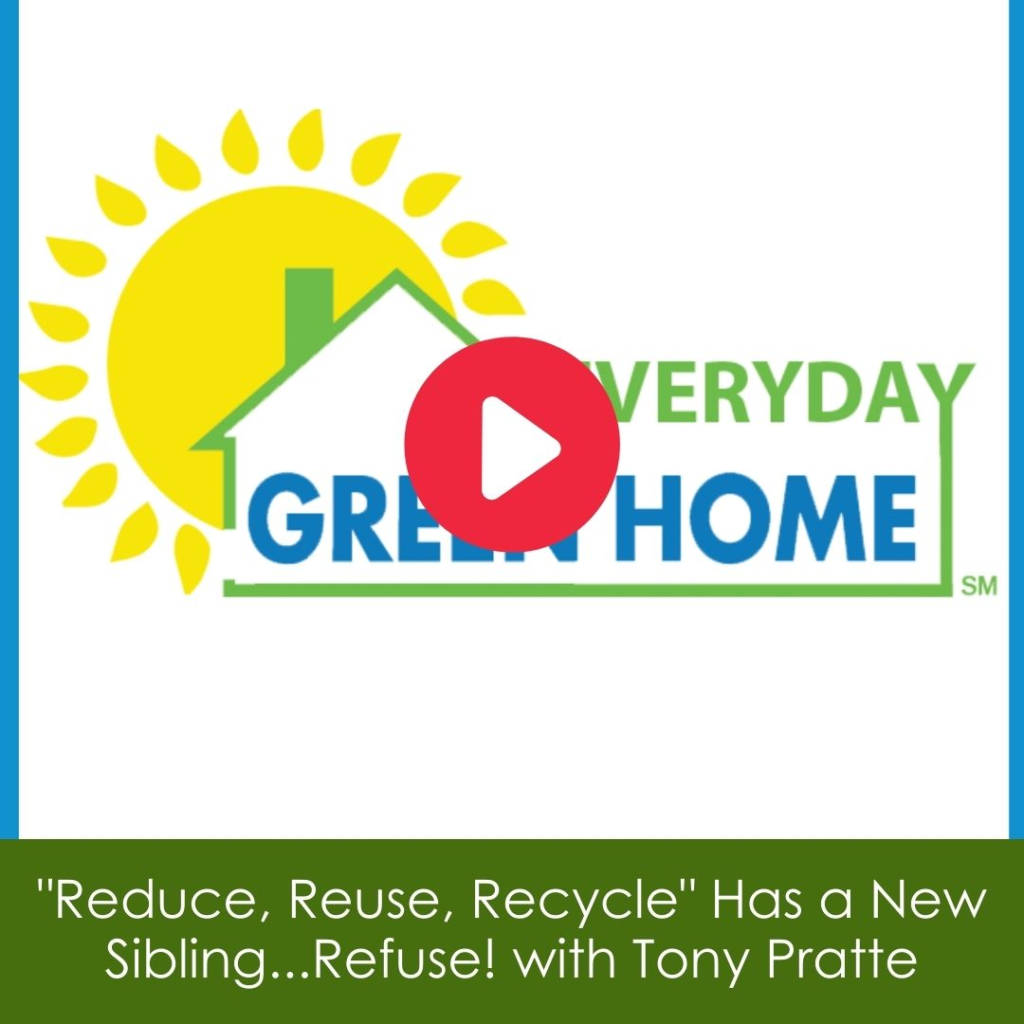
Reduce, Reuse, and Recycle. A couple of years ago, my regular co-host, Tony Pratte, and I did a podcast about these three Rs. The idea behind this trio of actions is to extend the life of an item so that we don’t keep on having to manufacture new ones.
Well, there’s a fourth ‘R’ now, and that’s REFUSE, which gives us the power to refuse to act in any way that will add to the current global crisis.
This global pandemic has changed so much about our day-to-day living and almost everything that we used to think normal has changed in some way. In fact, Tony feels that the only thing right now that is normal is chaos! Join us in the conversation to learn how this is the perfect time to look at everything in a different light and to consider doing things in a new and better way.
Tony’s bio
Tony is the Director of Builder/Contractor Relations at The Sound Room in St. Louis, Missouri, where he is responsible for building relationships between home builders and The Sound Room System designers to help create the ultimate home experience.
Tony has been working in the construction industry for more than eighteen years. During that time, he has been building relationships, and he has become a valued part of the construction team, assisting his builder clients with delivering their customers’ dreams. He is currently a member of the Home Builders Association of St. Louis and Eastern Missouri, where he also served as a member of the Board of Directors from 2007 to 2011. His specialties are builder development, industry networking, and interior design.
A disposable society
Although the manufacturing of products creates jobs and brings in revenue, one of the problems with wealthy economies is that the general mindset becomes one of a disposable society. And as a result, everything becomes disposable, and people feel that they need to keep on buying new things.
The fourth R
The fourth R stands for Refuse. You can flat-out refuse to buy or use things that you don’t need. This action is closely linked to Reduce, and the whole idea is for us to refuse to use single-use items, like straws, plastic bags, and disposable cups, any longer.
Latest and greatest mindset
Many of us have even adopted the “use it and throw it away” mindset for some big things, like TVs, for example, or computers or phones because technology is always changing, updating and getting cheaper. And some people think they must always have the latest and the greatest of everything available.
A practical example of reuse
If you buy a new TV, something needs to happen with the old one. It could get donated to someone who needs it, or you could sell it at a garage sale.
Broken items don’t get fixed
Today, most people don’t even think about having anything repaired. And the prevailing mindset of most companies, when it comes to old technology, is to no longer manufacture any replacement parts because it works out cheaper to buy a brand new item. So people often end up with their old equipment on their hands, and they don’t know what to do with them.
Recycling electronics
Once a week, a couple goes around to the electronics business where Tony works to collect old electronic equipment for recycling. They break it down, strip out any usable parts, and sell them on the internet as replacement parts.
Repairability
Repairability also plays into the three Rs because it conserves resources, and it extends the reusability of items.
Plastic
Plastic is everywhere! It is useful, and it changed our lives in the previous generation. Single-use plastic items, however, have also contributed to the “throw-away” mindset. So, the way we use plastic, and how we treat it has become a big concern for many of us.
Learn to refuse
We all need to refuse to buy things we don’t need. And we also need to refuse to use single-use items, like plastic straws and water bottles.
Remember, you can make a change by just saying “no”.
Links and resources:
Alternatives to Single-Use Plastic Bags from Everyday Green Home